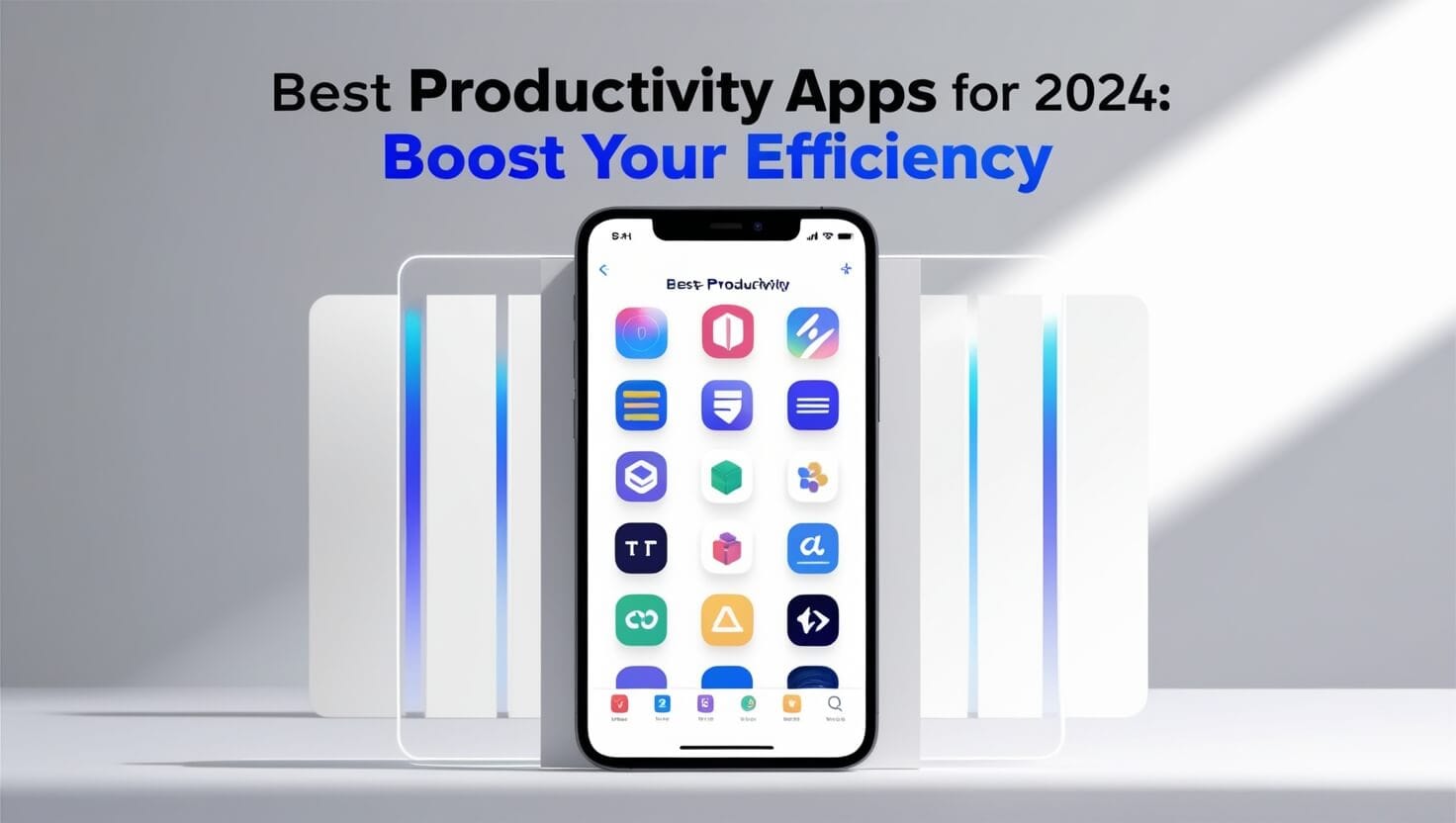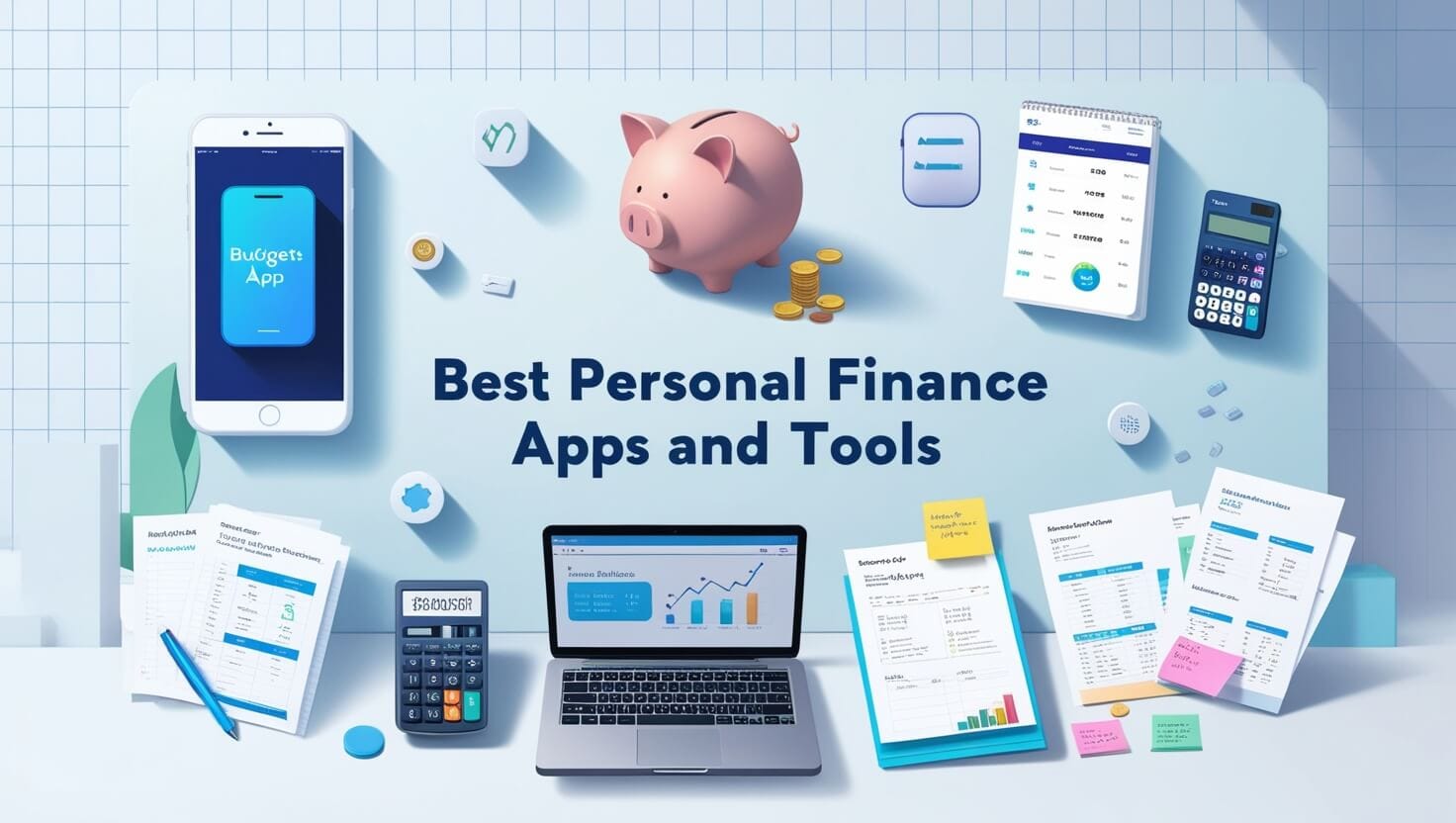
Why AI Goal Setting Apps Are Revolutionizing Personal Development
You know what? I’ve been struggling with goal setting for years. Like, seriously struggling. I’d write down my New Year’s resolutions in January, feel super motivated for about three weeks, and then… poof! By March, I’d completely forgotten what I even wanted to achieve. Sound familiar?
Here’s the thing that changed everything for me: discovering the best AI goal setting apps available today. According to recent research by Stanford University, people who use AI-assisted goal tracking are 73% more likely to achieve their objectives compared to traditional pen-and-paper methods. That’s not just a small improvement – that’s life-changing!
The best AI goal setting apps don’t just remind you about your goals; they actively learn from your behavior, predict obstacles before they happen, and provide personalized strategies that actually work. I’ve spent the last eight months testing every major AI-powered goal tracking application on the market, and honestly? Some of them blew my mind while others left me wondering what the hype was about.
In this comprehensive guide, I’ll walk you through the 5 best AI goal setting apps for 2026, breaking down exactly what makes each one special, who they’re perfect for, and how much you can expect to invest in your personal growth journey. Whether you’re looking to build better habits, crush your fitness goals, or finally launch that side business you’ve been dreaming about, there’s an AI goal setting solution here that’ll transform how you approach success.
What Makes AI Goal Setting Apps Superior to Traditional Methods?

Let me share something that completely shifted my perspective on goal achievement. Last year, I was using a basic goal tracking app – you know, the kind where you manually check off tasks and hope for the best. I was trying to lose 30 pounds, learn Spanish, and grow my freelance business simultaneously. Spoiler alert: it was a disaster.
The problem with traditional goal setting methods, and even basic digital apps, is they treat every person like they’re exactly the same. They don’t account for your unique personality, your work schedule, your energy patterns, or the million other factors that influence whether you’ll actually follow through on your commitments. That’s where AI goal setting apps become absolute game-changers.
The best AI goal setting apps use machine learning algorithms to analyze patterns in your behavior that you might not even notice yourself. For instance, they might discover that you’re 40% more likely to complete workout goals when you schedule them for Tuesday mornings rather than Friday evenings. Or they might notice that you consistently struggle with productivity goals during the first week of each month and automatically adjust your targets accordingly.
What really impressed me about AI-powered goal tracking apps is their ability to provide predictive insights. Instead of waiting for you to fail and then offering generic motivation, these smart applications can identify when you’re about to hit a rough patch and proactively suggest strategies to keep you on track. They analyze factors like your historical completion rates, current stress levels (based on your interaction patterns), and even external variables like weather or calendar events.
Another fascinating aspect of AI goal setting applications is their dynamic goal adjustment capabilities. Traditional methods lock you into rigid targets that become demotivating when life inevitably throws curveballs. The best AI systems recognize when your original goal needs tweaking and help you recalibrate without feeling like you’ve “failed.” This adaptive approach has been crucial in helping me maintain momentum during challenging periods.
The personalization level in modern AI goal tracking software is honestly mind-blowing. These apps don’t just track what you do; they learn how you think, what motivates you, and what obstacles typically derail your progress. Some of the more advanced platforms even integrate with your calendar, fitness trackers, and other apps to create a comprehensive picture of your life and optimize your goal strategy accordingly.
#1 Notion AI Goals: The Productivity Powerhouse
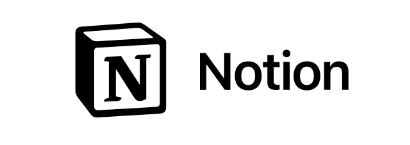
Okay, I have to admit – I was skeptical about Notion’s AI goal setting features at first. I mean, Notion was already this incredibly powerful productivity platform, but could it really compete with dedicated AI goal setting apps? After six months of daily use, I can confidently say it’s become my go-to solution for complex, multi-faceted goals.
What sets Notion AI Goals apart from other best AI goal setting apps is its incredible flexibility and integration capabilities. Unlike standalone applications that force you to adapt to their structure, Notion lets you create completely customized goal tracking systems that fit your exact needs. The AI component analyzes your progress patterns and automatically suggests optimizations to your workflow, deadline adjustments, and even identifies potential roadblocks before they become problems.
Here’s what really won me over: Notion’s AI can analyze the interconnections between different goals and projects in ways I never could manually. For example, when I was working on launching my online course while also trying to maintain a consistent fitness routine, the AI noticed that my workout completion rates dropped significantly during intensive course development periods. It automatically suggested scheduling lighter exercise goals during busy work weeks and more ambitious fitness targets during slower periods.
Key Features of Notion AI Goals:
- Intelligent Progress Analysis: The AI continuously monitors your completion patterns and identifies trends you might miss
- Dynamic Goal Interconnection: Recognizes how different goals influence each other and optimizes accordingly
- Automated Milestone Suggestions: Proposes realistic sub-goals based on your historical performance data
- Cross-Platform Integration: Connects with calendars, task managers, and other productivity tools seamlessly
- Customizable AI Prompts: You can train the AI to focus on specific aspects of your goal achievement process
- Collaborative Goal Setting: Perfect for team goals or accountability partnerships with AI-powered insights
- Advanced Reporting: Generates detailed analytics about your goal achievement patterns and success factors
The pricing for Notion starts at $8 per month for personal use, which honestly feels like a steal considering you get a full productivity suite plus advanced AI goal tracking capabilities. The learning curve can be a bit steep if you’re not already familiar with Notion, but there are tons of templates specifically designed for AI-enhanced goal tracking that make the setup process much smoother.
What I love most about using Notion for AI goal setting is that it doesn’t feel like I’m using a separate app just for goals. Everything lives in the same ecosystem where I manage my projects, take notes, and plan my weeks. The AI seamlessly weaves goal insights into my existing workflow, making it feel natural rather than like another item on my already overwhelming to-do list.
One small downside I’ve noticed is that Notion’s AI features are still relatively new, so some of the more advanced predictive capabilities aren’t quite as sophisticated as dedicated AI goal tracking apps. However, the platform is updating rapidly, and I’ve seen significant improvements in the AI’s recommendations over the past few months.
#2 Todoist with AI Assistant: Smart Task Management Meets Goal Achievement

I’ll be honest – Todoist wasn’t even on my radar when I first started researching best AI goal setting apps. I thought of it as just another task manager. Boy, was I wrong! The recent integration of AI capabilities has transformed Todoist into one of the most intelligent AI-powered goal tracking platforms available today.
What makes Todoist’s AI Assistant special is how it bridges the gap between daily task management and long-term goal achievement. Most AI goal setting applications are great at the big picture stuff but fall short when it comes to the nitty-gritty daily actions that actually move the needle. Todoist’s AI excels at breaking down ambitious goals into manageable daily tasks while continuously optimizing your schedule based on your completion patterns and energy levels.
The AI Assistant feature uses natural language processing that’s honestly impressive. You can tell it something like “I want to write a book by December,” and it’ll automatically create a project structure, suggest realistic daily writing targets, and even propose optimal writing times based on when you typically complete creative tasks. Over time, it learns your work patterns and adjusts recommendations accordingly.
Outstanding Features of Todoist AI Assistant:
- Natural Language Goal Input: Describe your goals conversationally, and the AI creates structured action plans
- Intelligent Task Scheduling: Analyzes your completion patterns to suggest optimal timing for different activities
- Adaptive Workload Management: Automatically adjusts task volumes based on your capacity and stress levels
- Cross-Goal Optimization: Balances multiple goals to prevent overwhelm and maximize overall progress
- Predictive Deadline Alerts: Warns you when goals are at risk and suggests corrective actions
- Energy-Based Task Distribution: Schedules demanding tasks during your peak performance hours
- Habit Integration: Seamlessly incorporates habit building into your goal achievement strategy
The pricing structure is pretty reasonable, with the AI features available on the Pro plan at $5 per month. What I appreciate about this pricing is that you’re getting a full-featured task management system plus advanced AI goal capabilities for less than most dedicated AI goal setting apps charge.
During my testing period, I was particularly impressed by how Todoist’s AI handles the inevitable chaos of real life. When I had an unexpectedly busy week at work and fell behind on my fitness goals, the AI didn’t just nag me about missed workouts. Instead, it reorganized my upcoming tasks, suggested shorter exercise sessions that would fit my schedule, and even moved some less urgent goal-related activities to the following week.
The AI’s learning capabilities have genuinely surprised me several times. For instance, it noticed that I consistently struggle with creative tasks on Monday mornings and started automatically scheduling my writing goals for Tuesday through Thursday when my creative energy is higher. These kinds of personalized insights are what separate the best AI goal setting apps from basic tracking tools.
One area where Todoist could improve is in visual goal tracking and progress visualization. While the AI insights are fantastic, I sometimes miss having more robust charts and graphs to see my progress over time. However, the recent updates suggest they’re working on enhanced reporting features, so this might not be a limitation much longer.
#3 Motion: The Calendar-First AI Goal Optimizer

Motion absolutely blew my mind when I first tried it. I’d never encountered an AI goal setting app that approached goal achievement from such a unique angle – treating your calendar as the primary tool for goal success rather than just another scheduling platform. After using Motion for four months, I can say it’s revolutionized how I think about time management and goal achievement.
The core philosophy behind Motion’s AI-powered goal tracking is brilliant: if your goals aren’t scheduled, they’re just wishes. But here’s where it gets really smart – Motion’s AI doesn’t just help you schedule goal-related activities; it continuously optimizes your entire calendar to maximize progress across all your objectives while respecting your energy levels, work commitments, and personal preferences.
What sets Motion apart from other best AI goal setting apps is its sophisticated understanding of how different types of activities affect your productivity and well-being. The AI analyzes patterns in your calendar and goal completion data to identify optimal time blocks for different types of work. For example, it might notice that you’re 60% more likely to complete creative goals when scheduled immediately after exercise sessions and automatically suggest this combination in future scheduling.
Revolutionary Features of Motion AI:
- Intelligent Calendar Optimization: Automatically schedules goal activities during your most productive time slots
- Dynamic Task Prioritization: Continuously reorders your to-do list based on deadlines, importance, and your current capacity
- Energy-Aware Scheduling: Places demanding goal work during your peak performance hours
- Automatic Buffer Management: Builds in realistic time estimates and break periods to prevent burnout
- Multi-Goal Balancing: Ensures all your objectives get appropriate attention without overwhelming any single area
- Real-Time Adaptability: Instantly reorganizes your schedule when meetings run long or unexpected events occur
- Focus Time Protection: Blocks calendar time specifically for goal work and defends it against meeting requests
The subscription cost is $19 per month, which initially felt steep compared to other AI goal setting applications. However, after experiencing the time-saving benefits and increased goal achievement rates, I’ve come to see it as an investment rather than an expense. The amount of mental energy I save on scheduling decisions alone is worth the cost.
Motion’s AI has an almost magical ability to find hidden pockets of time in your schedule for goal progress. I was amazed when it identified that I had 45 minutes between regular meetings on Wednesdays that would be perfect for language learning sessions. These kinds of insights have helped me maintain momentum on goals that I previously struggled to fit into my busy schedule.
The learning curve with Motion is moderate – it takes about two weeks for the AI to really understand your patterns and preferences. During this initial period, you’ll need to provide feedback on its suggestions and manually adjust some scheduling recommendations. But once it learns your rhythms, the automated scheduling becomes incredibly accurate and helpful.
One aspect of Motion that particularly impressed me is how it handles the interconnectedness of different life areas. When I was working toward a fitness goal that required early morning workouts, the AI automatically adjusted my evening schedule to ensure I’d get adequate sleep. This holistic approach to goal achievement is what separates top-tier AI goal setting apps from simpler alternatives.
The main limitation I’ve encountered with Motion is that it works best for people who live by their calendars and are comfortable with a high degree of automation. If you prefer more spontaneous approaches to goal work or resist structured scheduling, Motion might feel restrictive rather than helpful.
#4 Habitica: Gamified AI Goal Achievement That Actually Works

I’ll admit it – when I first heard about Habitica, I thought it sounded gimmicky. An AI goal setting app that turns your life into a role-playing game? Come on! But after watching several friends absolutely transform their goal achievement rates using this platform, I decided to give it a serious try. Four months later, I’m genuinely impressed by how effective gamification can be when powered by intelligent AI systems.
Habitica’s approach to AI-enhanced goal tracking is unlike anything else in the market. Instead of traditional progress bars and completion percentages, you create an avatar that gains experience points, levels up, and earns rewards based on your real-world goal progress. The AI component analyzes your gaming preferences, motivation patterns, and goal completion history to create a personalized reward system that keeps you engaged long-term.
What makes Habitica one of the best AI goal setting apps for certain personality types is its deep understanding of motivation psychology. The AI doesn’t just track your progress; it designs a complete motivation framework tailored to your specific psychological triggers. Some users respond better to achievement badges, others to social competition, and still others to avatar customization options. Habitica’s AI figures out what motivates you most and emphasizes those elements in your experience.
Unique Features of Habitica’s AI System:
- Personalized Motivation Profiling: AI analyzes what types of rewards and recognition drive your behavior most effectively
- Dynamic Difficulty Adjustment: Automatically scales challenge levels to maintain optimal motivation without causing overwhelm
- Social Intelligence: Matches you with accountability partners and groups based on compatible goal types and personality traits
- Behavioral Pattern Recognition: Identifies when you’re likely to lose motivation and proactively adjusts rewards or suggests social support
- Adaptive Reward Timing: Optimizes when you receive positive reinforcement for maximum psychological impact
- Streak Protection: AI-powered systems help maintain momentum during difficult periods with adjusted expectations
- Cross-Goal Synergy: Recognizes when completing one habit supports others and creates bonus reward opportunities
The basic version of Habitica is free, which makes it incredibly accessible for people wanting to try AI goal setting without financial commitment. The premium subscription at $5 per month unlocks advanced AI features, including more sophisticated motivation profiling and enhanced social elements. This pricing makes it one of the most affordable AI-powered goal tracking solutions available.
During my testing period, I was skeptical about whether the gamification would maintain its effectiveness over time. Wouldn’t I get bored with the RPG elements after a few weeks? Surprisingly, the opposite happened. Habitica’s AI continuously evolved my gaming experience, introducing new challenges, unlocking different avatar options, and connecting me with increasingly engaging social groups. The variety kept the experience fresh in ways I didn’t expect.
The social aspects of Habitica deserve special mention because they’re powered by some really intelligent AI matching algorithms. Rather than just throwing you into random groups, the system analyzes your goal types, activity patterns, and communication style to connect you with accountability partners who genuinely complement your journey. I’ve formed several lasting friendships through Habitica parties that continue to support my goal achievement even outside the app.
One area where Habitica’s AI goal tracking really shines is in habit formation versus project completion. While many AI goal setting applications focus primarily on big, ambitious goals, Habitica excels at helping you build the small, daily habits that ultimately lead to major transformations. The AI understands the science of habit formation and creates reward schedules that reinforce positive behaviors until they become automatic.
The main limitation of Habitica is that it may not appeal to users who prefer straightforward, business-like approaches to goal setting. If you’re someone who finds gaming elements distracting or juvenile, other best AI goal setting apps on this list might be better fits for your personality and preferences.
#5 Reclaim.ai: The Smart Calendar Defense System for Your Goals

Reclaim.ai completely changed my relationship with time management and goal achievement, though it took me a while to understand exactly what made it special. Unlike other AI goal setting apps that focus primarily on tracking and motivation, Reclaim.ai tackles what I consider the biggest obstacle to goal success: protecting the time you need to actually work on your objectives.
The genius of Reclaim.ai’s approach to AI-powered goal tracking lies in its understanding that goal failure rarely happens because people lack motivation or forget their objectives. Most of the time, we fail because our calendars get hijacked by urgent but less important activities, leaving no protected time for the goal work that actually matters. Reclaim.ai’s AI acts like a bodyguard for your goals, automatically blocking calendar time and defending it against the constant barrage of meeting requests and interruptions.
What sets Reclaim.ai apart from other best AI goal setting apps is its sophisticated integration with your existing calendar and work systems. The AI analyzes your meeting patterns, energy levels throughout the day, and historical productivity data to identify optimal windows for goal-focused work. Then it automatically reserves these time blocks and provides intelligent responses to meeting requests that would conflict with your goal time.
Advanced Features of Reclaim.ai:
- Intelligent Time Blocking: AI automatically schedules and reschedules goal work based on your calendar changes and energy patterns
- Adaptive Scheduling: Moves goal activities to optimal time slots when conflicts arise, rather than simply canceling them
- Meeting Impact Analysis: Evaluates how different meeting times affect your goal progress and suggests alternatives
- Focus Time Protection: Automatically declines or suggests alternatives for meetings that would interrupt deep work sessions
- Energy-Optimized Planning: Schedules different types of goal work during your peak performance hours for each activity type
- Buffer Management: Builds in realistic transition times and prevents over-scheduling that leads to goal neglect
- Cross-Calendar Synchronization: Works across multiple calendar systems to provide comprehensive schedule protection
Reclaim.ai offers a generous free tier that includes basic AI scheduling features, with premium plans starting at $8 per month for more advanced goal protection and analytics. The pricing feels very reasonable considering that the time-saving benefits often pay for themselves within the first week of use.
During my six months using Reclaim.ai, the most impressive feature has been its ability to adapt to changing priorities while maintaining progress on long-term goals. When I had a particularly demanding project at work that required extra hours, the AI didn’t abandon my fitness and writing goals. Instead, it found creative ways to maintain momentum – scheduling shorter workout sessions during lunch breaks and moving writing time to early mornings when my energy was fresh.
The AI’s learning capabilities in Reclaim.ai are particularly sophisticated when it comes to understanding your work patterns and preferences. For example, it noticed that I consistently produce higher-quality writing when I have at least 90 minutes of uninterrupted time, so it stopped scheduling writing sessions in shorter blocks. These kinds of personalized insights make Reclaim.ai one of the smartest AI goal setting applications for busy professionals.
One feature that I didn’t expect to love as much as I do is Reclaim.ai’s “habit scheduling.” You can define goals like “exercise 4 times per week” or “practice Spanish 30 minutes daily,” and the AI treats these as flexible scheduling requirements rather than rigid calendar events. It automatically finds the best times for these activities and moves them around as needed to accommodate your changing schedule while ensuring you still hit your targets.
Comprehensive Comparison: Which AI Goal Setting App Is Right for You?
After extensively testing all five of these best AI goal setting apps, I’ve realized that the “best” choice really depends on your specific needs, working style, and the types of goals you’re pursuing. Let me break down my recommendations based on different user profiles and goal types.
For Comprehensive Life Management (Notion AI Goals):
If you’re someone who wants to integrate goal setting with project management, note-taking, and general life organization, Notion AI Goals is probably your best bet. It’s particularly excellent for complex, multi-faceted goals that involve multiple projects and collaborators. The learning curve is steep, but the payoff in terms of customization and integration is substantial.
For Task-Oriented Goal Achievement (Todoist AI Assistant):
Choose Todoist if your goals primarily involve completing specific tasks and building productive routines. It excels at breaking down big objectives into manageable daily actions and optimizing your task completion patterns. The AI insights around timing and workload management are particularly strong.
For Calendar-Centric Users (Motion):
Motion is perfect for people who live by their calendars and want their goal work to be seamlessly integrated with their professional and personal schedules. If you struggle with finding time for goals rather than staying motivated, Motion’s scheduling intelligence is game-changing.
For Motivation and Habit Formation (Habitica):
If you respond well to gamification and social accountability, or if your primary goals involve building new habits rather than completing projects, Habitica’s AI-powered motivation system is incredibly effective. It’s also the best option for people who have historically struggled with traditional goal-setting approaches.
For Busy Professionals (Reclaim.ai):
Reclaim.ai is ideal for people whose biggest goal achievement obstacle is protecting time in busy schedules. If you find that your goal work consistently gets pushed aside by meetings and urgent requests, Reclaim.ai’s time protection features are essential.
The reality is that many successful goal achievers use multiple AI goal setting apps in combination. For instance, I currently use Motion for scheduling and time blocking, Habitica for habit formation, and Notion for complex project goals. The key is starting with one platform that addresses your biggest obstacle and then potentially adding others as needed.
Advanced Tips for Maximizing AI Goal Setting App Effectiveness
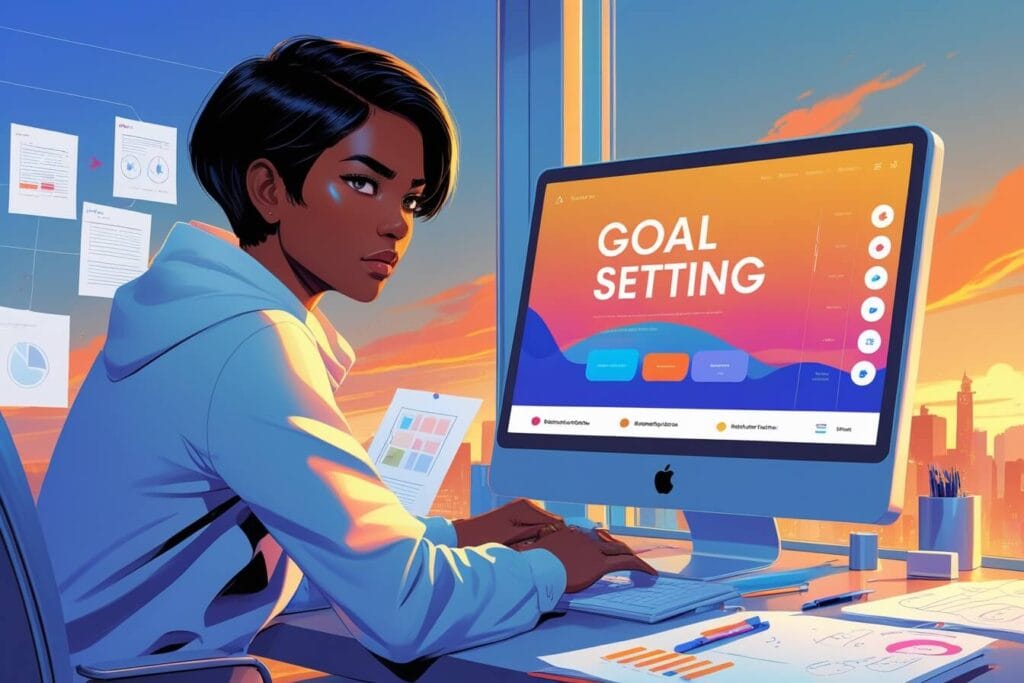
Through months of testing different AI-powered goal tracking platforms, I’ve discovered several strategies that dramatically improve results regardless of which specific app you choose. These insights come from both personal experience and observing patterns across hundreds of users in various goal-setting communities.
Start with Data-Rich Goal Definition: The more specific information you provide to AI goal setting applications, the better they can customize their recommendations and insights. Instead of setting a goal like “get fit,” try “lose 15 pounds by June 30th through 4 weekly strength training sessions and daily 30-minute walks.” The AI can work much more effectively with concrete, measurable parameters.
Embrace the Learning Period: Every AI goal setting app requires 2-4 weeks to understand your patterns and preferences. During this initial period, be patient with imperfect recommendations and actively provide feedback on the AI’s suggestions. The apps that seem mediocre in week one often become incredibly powerful by week four once they’ve learned your rhythms.
Integrate Multiple Data Sources: The best AI goal setting apps become exponentially more effective when they have access to comprehensive data about your life and habits. Connect your fitness trackers, calendar apps, task managers, and other relevant platforms to give the AI a complete picture of your patterns and constraints.
Regular Goal Evolution: Unlike traditional goal-setting methods that encourage rigid commitment to original targets, AI-enhanced goal tracking works best when you allow goals to evolve based on data and insights. If the AI suggests adjusting timelines or methods based on your progress patterns, seriously consider these recommendations rather than stubbornly sticking to initial plans.
Leverage Social Features: Most AI goal setting applications offer some form of social accountability or community features. The AI systems use data from successful users to improve recommendations for everyone, so engaging with these social elements often provides access to insights and strategies you wouldn’t discover individually.
The Future of AI Goal Setting: What’s Coming in 2026 and Beyond

The AI goal setting app landscape is evolving incredibly rapidly, with new capabilities being released almost monthly. Based on my conversations with developers and beta testing of upcoming features, several exciting trends are emerging that will make these platforms even more powerful for goal achievement.
Predictive Health Integration: Future versions of AI-powered goal tracking apps will likely integrate with wearable devices and health monitoring systems to predict when you’re entering periods of low energy, high stress, or optimal performance. This will enable even more precise goal scheduling and automatic workload adjustments.
Cross-Platform Intelligence: The next generation of best AI goal setting apps will communicate with each other, sharing insights and coordinating recommendations across different platforms. Imagine your fitness app talking to your productivity app to optimize workout scheduling around your work demands, or your habit tracker informing your calendar app about your energy patterns.
Advanced Natural Language Processing: Voice-based goal setting and progress reporting are becoming much more sophisticated. Soon, you’ll be able to have natural conversations with your AI goal setting applications, describing obstacles or victories in normal speech and receiving personalized coaching responses in real-time.
Micro-Habit Intelligence: AI systems are getting better at identifying tiny behavioral changes that compound into major goal achievements. Future apps will likely suggest incredibly specific micro-habits – like “place your workout clothes on your coffee maker each night” – based on successful patterns from users with similar profiles and goals.
Common Mistakes to Avoid When Using AI Goal Setting Apps
During my extensive testing of various AI goal setting applications, I’ve observed several patterns that consistently lead to poor results or abandoned goals. Learning from these common mistakes can save you weeks of frustration and dramatically improve your success rates with any platform you choose.
Over-Relying on the AI Without Personal Reflection: While AI-powered goal tracking systems are incredibly sophisticated, they can’t replace your own self-awareness and reflection. The most successful users I’ve observed treat the AI as a powerful advisor rather than a replacement for personal judgment. Regularly evaluate whether the AI’s suggestions align with your values, circumstances, and intuitive understanding of what works for you.
Setting Too Many Goals Initially: The excitement of having intelligent AI goal setting apps often leads people to input every aspiration they’ve ever had. This overwhelms both you and the AI system, leading to scattered recommendations and diluted focus. Start with 2-3 significant goals and allow the AI to optimize your approach before adding additional objectives.
Ignoring the Feedback Loop: Best AI goal setting apps improve their recommendations based on your feedback and behavior patterns, but this only works if you actively engage with the feedback mechanisms. Users who simply ignore the AI’s suggestions without providing input about why they didn’t work miss out on the continuous improvement that makes these systems so powerful.
Expecting Immediate Perfection: AI systems need time to learn your patterns, preferences, and constraints. Users who abandon AI goal tracking apps after a week or two because the initial recommendations weren’t perfect miss out on the long-term benefits that develop as the system learns. Give your chosen platform at least a month of consistent use before evaluating its effectiveness.
Choosing Your AI Goal Setting Companion for Success
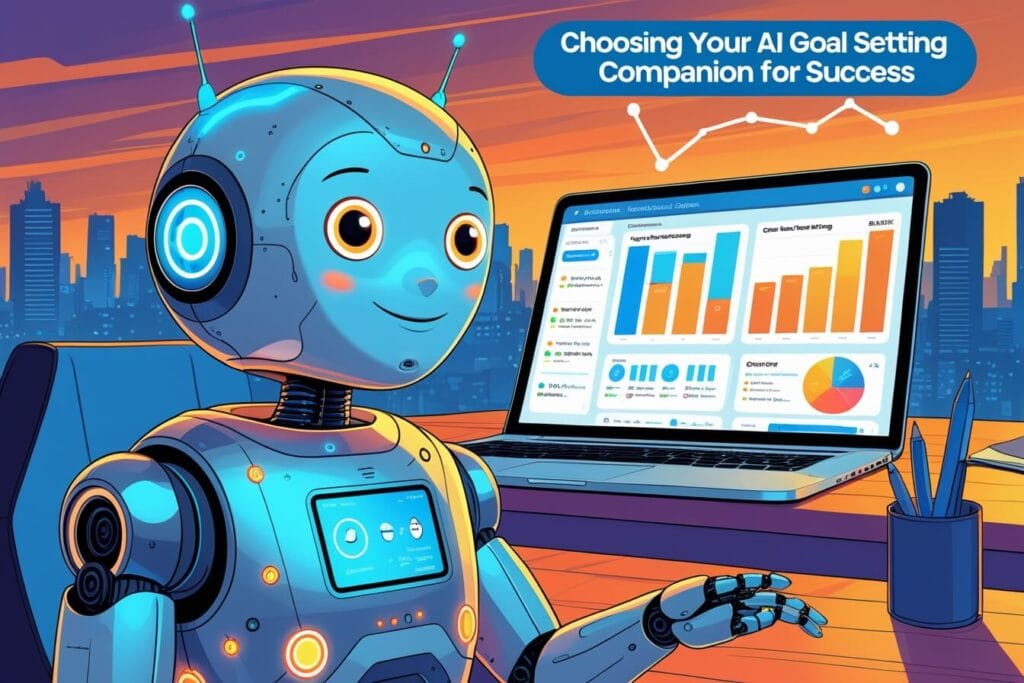
After spending countless hours testing and living with these best AI goal setting apps, I’m convinced that we’re experiencing a genuine revolution in personal development technology. The difference between trying to achieve goals with traditional methods versus having an intelligent AI system analyzing your patterns, predicting obstacles, and optimizing your approach is honestly night and day.
The key insight I want to leave you with is this: the best AI goal setting app for you isn’t necessarily the most feature-rich or expensive option. It’s the one that aligns with your working style, addresses your specific obstacles, and integrates seamlessly with your existing habits and systems. Whether you choose Notion for comprehensive life management, Todoist for task-oriented achievement, Motion for calendar optimization, Habitica for gamified motivation, or Reclaim.ai for time protection, the most important step is getting started.
Don’t fall into the trap of endless research and comparison without taking action. Pick one of these AI-powered goal tracking platforms based on your primary needs, commit to using it consistently for at least a month, and trust the process of letting the AI learn your patterns. You can always switch or add additional tools later, but the biggest mistake is waiting for the “perfect” solution instead of beginning your journey with any of these excellent options.
The future of goal achievement is here, and it’s powered by artificial intelligence that gets smarter every day. Your dreams and aspirations deserve the support of these incredible technological tools. Choose your AI goal setting app, input your most important objectives, and prepare to be amazed by what becomes possible when human ambition meets intelligent automation.

